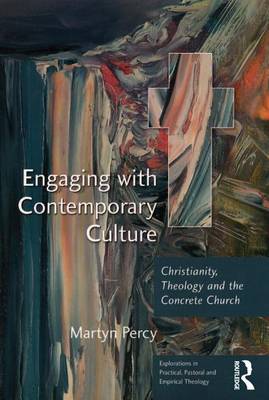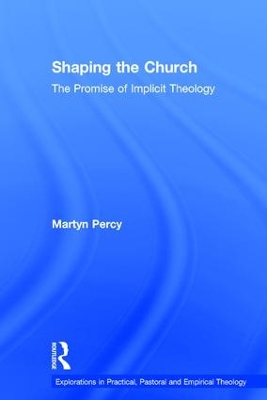Explorations in Practical, Pastoral and Empirical Theology
2 total works
Theology and the churches are often considered to be at the margins of contemporary culture, frequently struggling for identity and attention. In this important new book Martyn Percy argues that a rich form of practical theological engagement is needed if the churches are to comprehend their situation in the modern world, thereby enabling them to engage more confidently with society. Drawing on a range of perspectives in the religion-culture debate, and from case studies in the USA and Europe, the book explores the myriad of ways in which culture is now shaping contemporary Christianity, and how vital an appreciation of this dynamic is for the self-understanding of churches and theology. This book explores the crucial and continuing contribution that theology can make to public life, in an era that is often perceived to be dominated by consumerism and secularity. It will especially appeal to scholars of contemporary religion, practical theologians, and all those who are engaged in ministerial formation.
This book seeks to dynamically alter the way that theologians, ecclesiologists, students of religion and ministers look at the church. Taking the ideas of composition, formation and vocation as basic ecclesial categories, Martyn Percy explores how apparently innocent and incidental material is in fact highly significant for the shaping of theological and ecclesiological horizons. The Introduction sets the tone, with a meditation on how the apparently ordinary scent of a country church can be redolent with meaning, setting the tone of expectation in relation to subsequent worship. This book is not, however, simply about reading meanings into events, ideas, conversations and contexts. Rather, it sets out to faithfully interpret much of the material that surrounds us, yet is often taken for granted, or more usually unnoticed. The book is an invitation to involve the scholar or minister, paying close and patient attention to beliefs, language, artefacts, rituals, practices and other material - all of which are constitutive for ecclesial life and theological identity.

